My black pudding recipe is actually my grandmother’s. It started back in the 1960s. There was waste coming from the slaughterhouse and they had nothing to do with it. She happened to be a school teacher, so she researched it a small bit and came up with this recipe.
It’s the same recipe we use today, bar the machinery chopping is a bit finer nowadays. That time the hand chopping with a knife made it a bit lumpier. Along with the blood, fat, onions and oatmeal would be the mainstay of it. Then you’d have spices and salt.
They’d have been mixed inside in the kitchen here. There was an old turf range, she’d make enough for six trays of pudding and it would be thrown into the range then for about four hours. ‘Twas a labour of love. It’s still baked square now, as opposed to being boiled.

We use lamb and beef blood. Both of us who make Sneem Black Pudding, myself and Peter O’Sullivan, have our own slaughterhouses here in the village, so we used the fresh blood from the slaughterhouses.
PGI status
The fact that we’re using fresh blood is unique, because a lot of the puddings on the market now are made using dried blood. Sneem Black Pudding was granted Protected Geographical Indication (PGI) status earlier this year. We were delighted to get it, everything helps.
I’m the fourth generation butchering in my family. I remember my father working when I was younger. It was a major community effort to kill beef that time. You’d need six or seven men. The local pub, if you only went in and said it, they’d all run out of it to help. You’d only kill a beef once a month, whereas now we’d be killing a beef a week.
I didn’t go to any college for slaughtering. Sure I was brought up with it. Since we were knee-high, we were below holding the bucket for the animal being bled. There was always some little job for us to do. Taking the tongues out of sheep’s heads was my earliest job actually. I was seven or eight I’d say. It was a horrible job. I’d small hands, I suppose it was easier for me to do it than the rest.
It was a great cheque to get one time, the skin and the hide cheque, but now ‘tis a cheque going out
I still go out on the land to buy the animals. I pick out whatever’s fit. I could buy beef or sheep by the kg or a lot of its by the hoof, it depends on the farmer. The slaughterhouse is at the back of the house here, behind the butcher shop, in the middle of the village. We’re lucky that we have good neighbours.
There was a lot of pressure to try and close the small slaughterhouses there for a while. But the foot and mouth hit then and the pressure eased off us a bit. A bit like the lockdown now, the animals were being kept local rather than traipsing them half way across the country to be killed.
Paperwork is a massive part of it now as well. Regulations have been the biggest change down through the years. You have to go with it to survive.
In our industry, we have to pay for the skins and hides to go away. It was a great cheque to get one time, the skin and the hide cheque, but now ‘tis a cheque going out.
Boost for business
We sell all-over, into a lot of hotels especially. Dublin’s a big market. We have a local distribution network for butchers around Kerry and there’s a couple of butchers in Cork now taking it as well. I found the first lockdown was great for business really, to tell you the truth.

Sneem black pudding being made. \ Valerie O'Sullivan
It’s like every now and then there’s a bit of a reset. When the foot and mouth hit that time, sure it was very good for our business, because people knew the quality stuff was coming out of the small butcher shop.
This year actually, with all the Irish tourists, there were massive sales in the hotels, because all the Irish are eating full Irish breakfasts.
I have a variety of businesses too. I buy wool to export to England. There’s a major drop in wool prices. There’s a backlog of wool in England, so that’s causing the price to be depressed. I can see the wool trade coming back in two years’ time once they free this backlog, I’d say. I’d be stuck in cattle then as well. I like the old wheeling and dealing in cattle. We have land in Kilmallock, Co Limerick, but we’d be fattening cattle there, drystock. Variety’s the spice of life.
Read more
My Country Living: ‘When it comes to coopering you’re so connected to history’
‘We are open to everybody, regardless of their ability level’
My black pudding recipe is actually my grandmother’s. It started back in the 1960s. There was waste coming from the slaughterhouse and they had nothing to do with it. She happened to be a school teacher, so she researched it a small bit and came up with this recipe.
It’s the same recipe we use today, bar the machinery chopping is a bit finer nowadays. That time the hand chopping with a knife made it a bit lumpier. Along with the blood, fat, onions and oatmeal would be the mainstay of it. Then you’d have spices and salt.
They’d have been mixed inside in the kitchen here. There was an old turf range, she’d make enough for six trays of pudding and it would be thrown into the range then for about four hours. ‘Twas a labour of love. It’s still baked square now, as opposed to being boiled.

We use lamb and beef blood. Both of us who make Sneem Black Pudding, myself and Peter O’Sullivan, have our own slaughterhouses here in the village, so we used the fresh blood from the slaughterhouses.
PGI status
The fact that we’re using fresh blood is unique, because a lot of the puddings on the market now are made using dried blood. Sneem Black Pudding was granted Protected Geographical Indication (PGI) status earlier this year. We were delighted to get it, everything helps.
I’m the fourth generation butchering in my family. I remember my father working when I was younger. It was a major community effort to kill beef that time. You’d need six or seven men. The local pub, if you only went in and said it, they’d all run out of it to help. You’d only kill a beef once a month, whereas now we’d be killing a beef a week.
I didn’t go to any college for slaughtering. Sure I was brought up with it. Since we were knee-high, we were below holding the bucket for the animal being bled. There was always some little job for us to do. Taking the tongues out of sheep’s heads was my earliest job actually. I was seven or eight I’d say. It was a horrible job. I’d small hands, I suppose it was easier for me to do it than the rest.
It was a great cheque to get one time, the skin and the hide cheque, but now ‘tis a cheque going out
I still go out on the land to buy the animals. I pick out whatever’s fit. I could buy beef or sheep by the kg or a lot of its by the hoof, it depends on the farmer. The slaughterhouse is at the back of the house here, behind the butcher shop, in the middle of the village. We’re lucky that we have good neighbours.
There was a lot of pressure to try and close the small slaughterhouses there for a while. But the foot and mouth hit then and the pressure eased off us a bit. A bit like the lockdown now, the animals were being kept local rather than traipsing them half way across the country to be killed.
Paperwork is a massive part of it now as well. Regulations have been the biggest change down through the years. You have to go with it to survive.
In our industry, we have to pay for the skins and hides to go away. It was a great cheque to get one time, the skin and the hide cheque, but now ‘tis a cheque going out.
Boost for business
We sell all-over, into a lot of hotels especially. Dublin’s a big market. We have a local distribution network for butchers around Kerry and there’s a couple of butchers in Cork now taking it as well. I found the first lockdown was great for business really, to tell you the truth.

Sneem black pudding being made. \ Valerie O'Sullivan
It’s like every now and then there’s a bit of a reset. When the foot and mouth hit that time, sure it was very good for our business, because people knew the quality stuff was coming out of the small butcher shop.
This year actually, with all the Irish tourists, there were massive sales in the hotels, because all the Irish are eating full Irish breakfasts.
I have a variety of businesses too. I buy wool to export to England. There’s a major drop in wool prices. There’s a backlog of wool in England, so that’s causing the price to be depressed. I can see the wool trade coming back in two years’ time once they free this backlog, I’d say. I’d be stuck in cattle then as well. I like the old wheeling and dealing in cattle. We have land in Kilmallock, Co Limerick, but we’d be fattening cattle there, drystock. Variety’s the spice of life.
Read more
My Country Living: ‘When it comes to coopering you’re so connected to history’
‘We are open to everybody, regardless of their ability level’






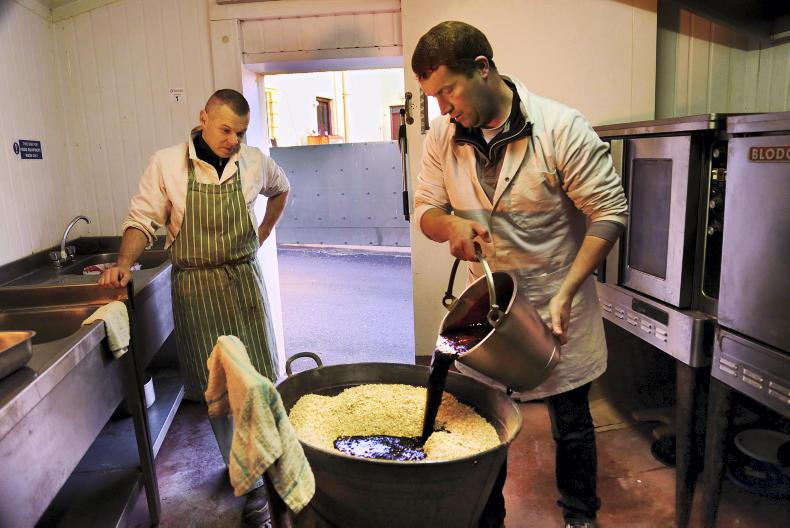
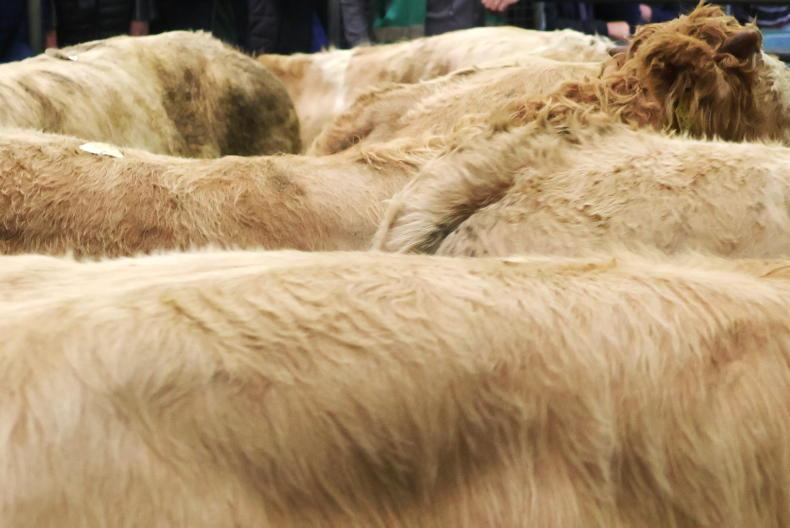

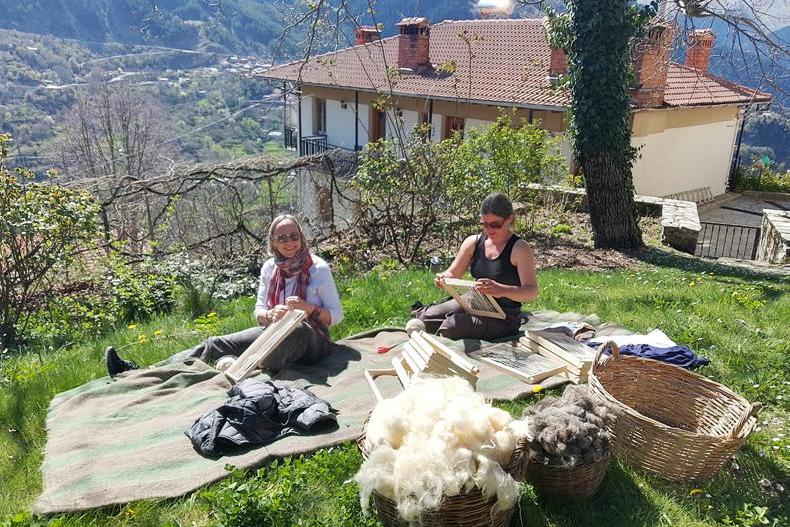
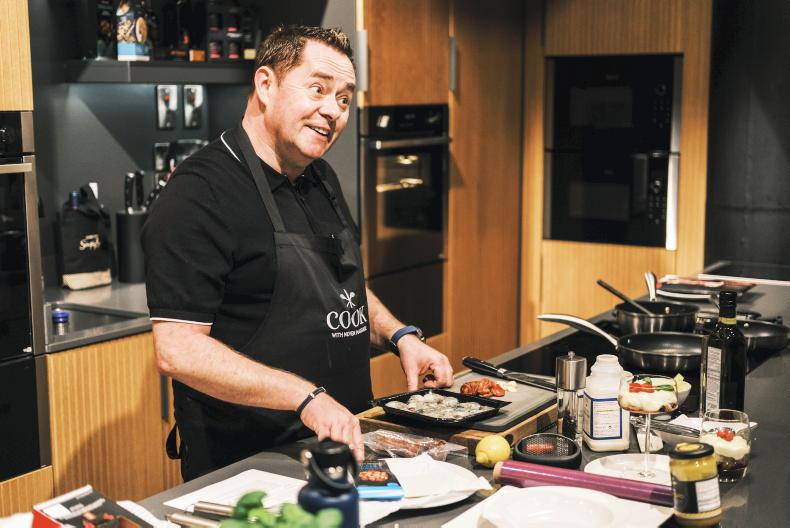
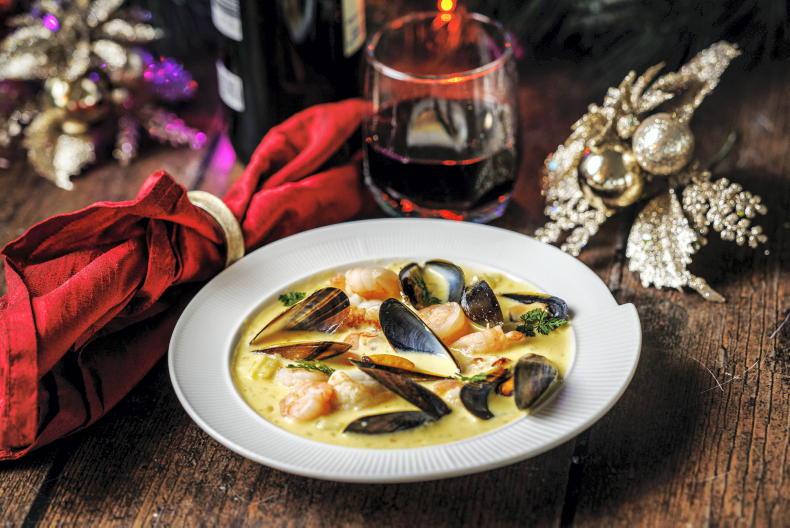
SHARING OPTIONS